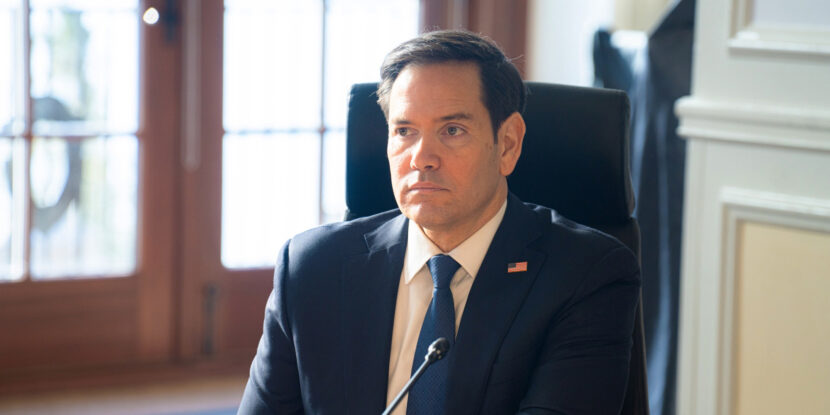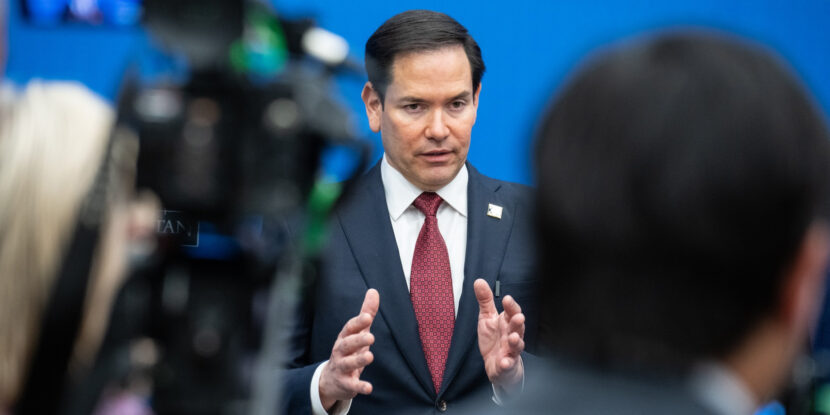
PULSE POINTS:
❓What Happened: President Donald J. Trump’s Secretary of State, Marco Rubio, says the Department of State will begin revoking student visas for Chinese nationals studying at American universities.
👥 Who’s Involved: Marco Rubio, Chinese nationals studying in the United States.
Your free, daily feed from The National Pulse.
📍 Where & When: Visa revocations were announced late Wednesday, May 28, 2025.
💬 Key Quote: “The U.S. will begin revoking visas of Chinese students, including those with connections to the Chinese Communist Party or studying in critical fields,” Rubio wrote.
⚠️ Impact: The move is aimed at cracking down on political and corporate espionage that is often perpetrated by foreign Chinese students on behalf of the Chinese Communist Party (CCP).
IN FULL:
U.S. Secretary of State Marco Rubio announced late Wednesday evening that the State Department will begin revoking visas for Chinese students studying at American universities. In a post on X (formerly Twitter), Rubio appears to imply that the visa revocations for students with ties to the Chinese Communist Party (CCP) will be the priority.
“The U.S. will begin revoking visas of Chinese students, including those with connections to the Chinese Communist Party or studying in critical fields,” Rubio wrote.
A Congressional report last October found that CCP espionage efforts in the United States intensified under the former Biden government. Released by the House Homeland Security Committee’s Subcommittee on Counterterrorism, Law Enforcement, and Intelligence, the report found that “Beijing has continually encroached upon American sovereignty to spy, intimidate, and harass… defectors and American citizens.”
Notably, harassment and both political and corporate espionage activities have been linked to foreign students from China studying in the U.S. in the past. Additionally, lawmakers on Capitol Hill have emphasized the potential national security concerns posed by the number of Chinese nationals studying at American universities.

PULSE POINTS:
❓What Happened: The Trump administration announced a visa ban targeting British officials involved in censoring American citizens, warning that foreign actors who trample free speech rights will no longer be welcome in the United States.
👤Who’s Involved: U.S. Secretary of State Marco Rubio, British media regulator Ofcom, Metropolitan Police Commissioner Mark Rowley, and Lucy Connolly, a British mother imprisoned for a social media post.
Your free, daily feed from The National Pulse.
🧾Key Quote: “We will not tolerate encroachments upon American sovereignty, especially when such encroachments undermine the exercise of our fundamental right to free speech,” said Rubio.
⚠️Fallout: British officials were blindsided by the announcement and are scrambling for answers from the White House, as pro-censorship authorities face mounting scrutiny from Washington.
📌Significance: The move marks a sharp escalation in the Trump administration’s effort to push back against globalist speech controls and defend the First Amendment from foreign interference.
IN FULL:
British government officials involved in censoring American citizens could soon be barred from setting foot in the United States under a sweeping new measure from the Trump administration. Secretary of State Marco Rubio announced the visa restrictions on Wednesday, directly targeting foreign bureaucrats and regulators deemed “complicit in censoring” Americans online.
The policy appears to be aimed at Ofcom, the British government media regulator responsible for enforcing the controversial Online Safety Act—a law that critics say enables sweeping censorship and punishes American tech companies with massive fines. Under the legislation, platforms that fail to remove so-called “harmful content” face penalties of up to £18 million (~$24.4 million) or 10 percent of annual revenue, placing U.S.-based firms in the crosshairs of British law.
“For too long, Americans have been fined, harassed, and even charged by foreign authorities for exercising their free speech rights,” Rubio said. “It is unacceptable for foreign officials to issue or threaten arrest warrants on U.S. citizens or U.S. residents for social media posts on American platforms while physically present on U.S. soil.”
The Trump administration has taken particular offense at the British government’s attempts to impose extra-territorial censorship, with Rubio adding: “It is… unacceptable for foreign officials to demand that American tech platforms adopt global content moderation policies or engage in censorship activity that reaches beyond their authority and into the United States.”
The announcement reportedly caught British officials off guard, with diplomats urgently seeking clarity from Washington. The warning comes just days after it was reported that the White House is actively “monitoring” the case of Lucy Connolly, a British mother sentenced to 31 months in prison for a social media post about a mass stabbing targeting young girls in Southport, England, perpetrated by the son of two African asylum seekers.
That case drew international concern after British officials threatened to prosecute or extradite Americans who violated their hate speech laws online. “We will throw the full force of the law at people,” warned Metropolitan Police Commissioner Sir Mark Rowley at the time. “Whether you’re in this country committing crimes on the streets or committing crimes from further afield online, we will come after you.”
In response, U.S. State Department officials from the Bureau of Democracy, Human Rights, and Labor traveled to London in March. The diplomats reportedly met with pro-life activists—imprisoned for as little as silently praying inside their heads near abortionist clinics under laws restricting freedom of expression and religion.
The Vice President has taken a personal interest in censorship in Britain and Europe more broadly, warning during a speech in Germany, “In Britain and across Europe, free speech, I fear, is in retreat.”
show less

 1 month ago
1
1 month ago
1








 English (US) ·
English (US) ·